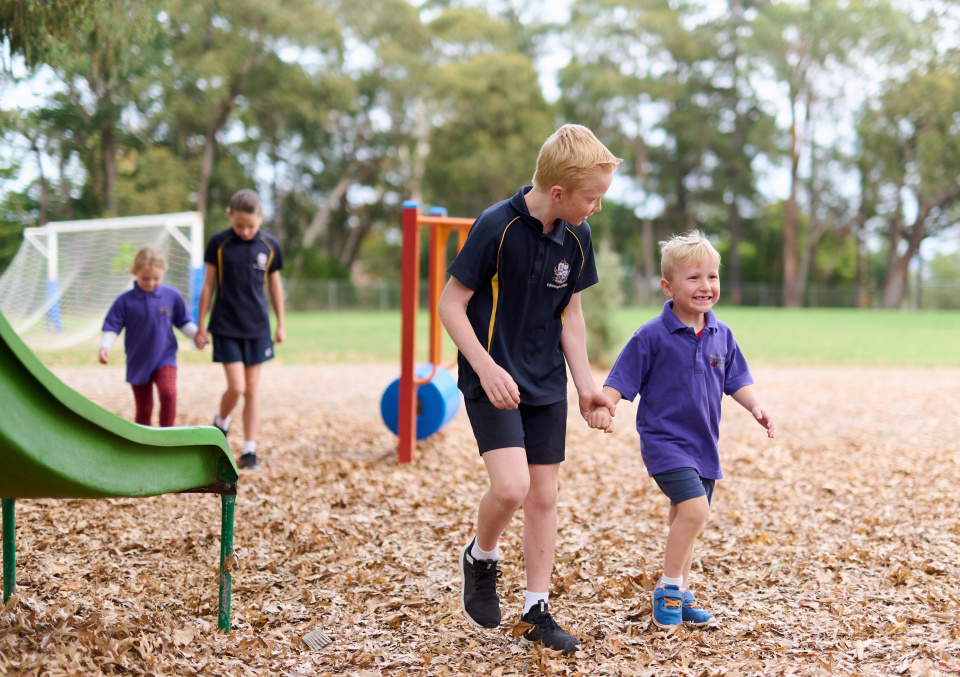Free Kinder in Long Day Care
Victorian Government’s Free Kinder Initiative
Edinburgh College is a proud provider of the Victorian Government’s Free Kinder initiative. This means you will receive a Free Kinder fee offset of up to $2,101 on your out-of-pocket fees.
Families enrolled in the Edinburgh College Early Learning Centre with:
- 3-year-old children save $2,101 (15 hours)
- 4-year-old children save $2,101 (15 hours)
Free Kinder helps all Victorian children access two years of a high-quality kinder program before they start school. Enrolling your child in a kinder program for two years helps their learning and development so they do well in life and school.Families may be eligible for additional Child Care Subsidies through Centrelink.
Free Kinder is for All Families
You do not need to be an Australian citizen to access Free Kinder. The Free Kinder fee offset is available if your child attends either our three-year-old or four-year-old kindergarten program for 15 hours (2 days) per week.
If your child is enrolled in our kindergarten program, you will receive a saving from your out-of-pocket fees. We will apply this directly to your account in regular instalments over the year.
Remember, you cannot enrol your child in more than one funded kindergarten program at any one time.

Frequently Asked Questions About Free Kinder
How much is the kindergarten fee subsidy?
Free Kinder provides a fee offset of up to $2,101 per eligible child each year. For 3 and 4-year-old children, this means $2,101 for children enrolled in a 15-hour kindergarten program (600 hours a year).
Am I eligible for the Free Kinder subsidy?
Free Kinder is for everyone. You do not need to be an Australian citizen to be eligible to access Free Kinder. You also do not need to be eligible for Australian Government Child Care Subsidy (CCS) to receive Free Kinder.
Your child can only access a Victorian Government funded kindergarten place and receive Free Kinder funding in one service at a time. Your service should request you to sign a kindergarten letter to confirm where you are accepting your child’s funded place.
How do I access the Free Kinder offset?
Your long day care service will receive the Victorian Government Free Kinder funding on your behalf.
Your service will pass on the offset as a direct reduction to your out-of-pocket fees after the Commonwealth’s Child Care Subsidy (CCS) is applied.
How is the fee offset applied to my out-of-pocket fees?
The Free Kinder offset will be applied to your fees across the year (e.g., weekly or fortnightly). You should be able to see the amount clearly stated on your invoice as ‘Victorian Government Free Kinder offset’.
Each kindergarten service will typically apply the fee offset in line with its billing schedule throughout the year. For information on how the offset will be applied to your fees and how this is shown on your invoice, please talk directly to your kindergarten service.
If your child accesses more than 15 hours per week, these additional hours are not covered by the offset.
Example
- A 4-year-old child goes to a long day care with a kindergarten program for 3 days a week.
- The service charges $360 for the 3 days (including kindergarten hours and additional care hours).
- The family gets Child Care Subsidy (CCS) of $252.
- The service has chosen to apply the $2,101 Free Kinder offset weekly over 40 weeks ($52.5 per week).
- The family pays $55.5 after CCS and Free Kinder offset.
What happens if my child changes kindergarten services during the year?
If your child moves to a different long day care service during their kindergarten year, the service that you are moving from will stop receiving the Free Kinder payment and your new long day care service will receive the Free Kinder funding so they can continue to pass the fee offset on to you.
If your child moves to a sessional (standalone) service that is participating in Free Kinder during the kindergarten year, the funded kindergarten program will be free.
More information about Free Kinder in sessional services vic.gov.au/kinder
When can my child start kindergarten?
Children born between January and April can choose which year to start Three-Year-Old Kindergarten. These children can start in the same year they turn 3, or in the year they turn 4 years of age.
Due to staffing requirements, some services may ask that children start attending kinder only after their third birthday. This may mean that some children may not start attending their kinder program until part-way into Term 1.
When your child can start at kindergarten directly relates to the age they will start at primary school. When enrolling at Three-Year-Old Kindergarten, we encourage families to plan ahead and consider the age they would like their child to start at school.
If your child will turn 6 in late December (between the last day of the school year and 31 December), they can attend Four-Year-Old Kindergarten in that year and attend school the following year.
Contact us about the best time for your child to start at Three-Year-Old Kindergarten.
What is a Kinder Kit?
All children starting free Three-Year-Old Kindergarten, including Early Start Kindergarten and Access to Early Learning will be eligible to receive a Kinder Kit, helping them develop their love of learning at home as well as kinder.
The Kinder Kit contents have been carefully curated and provide educational and fun items to support three-year-old children to develop their skills and creativity as they learn through play.
What is Play-Based Learning?
Play-based learning supports children to explore and make sense of themselves and their world. It builds on children’s natural curiosity. Through hands-on exploration of the world around them children learn in many ways. For example, playing with sand helps children learn about mathematical ideas, such as weight and volume, and playing with dolls and dress-ups helps children learn about families and how to relate to others.
This approach to early childhood education supports children to learn and extend their development through activities and experiences that they find enjoyable and interesting. Programs that help children to learn through play are supported by educators who will provide children with opportunities for:
- adult-led learning where the educator plans or introduces a play experience, idea or topic to purposefully direct the child’s learning
- child-directed play and learning where the child leads their own learning through exploration, imagination and experimentation
- guided play and learning where educators involve themselves in children’s spontaneous play and extend their learning as opportunities arise.
Why is Play-Based Learning Important?
Play-based learning is now widely understood to be one of the most important ways to support children to develop the skills and understanding they need to live well now and into the future.
There is strong evidence that the pathways in children’s brains are positively influenced by the exploration that happens during play. Play supports children in all areas of their development, including their understanding of themselves and relationships with others, their connection to the communities they live in, how they communicate effectively with others and how they think about and solve problems.
Positive attitudes towards learning, such as persistence, curiosity and imagination are all developed during play. These attitudes set children up for a life-long love of learning.
